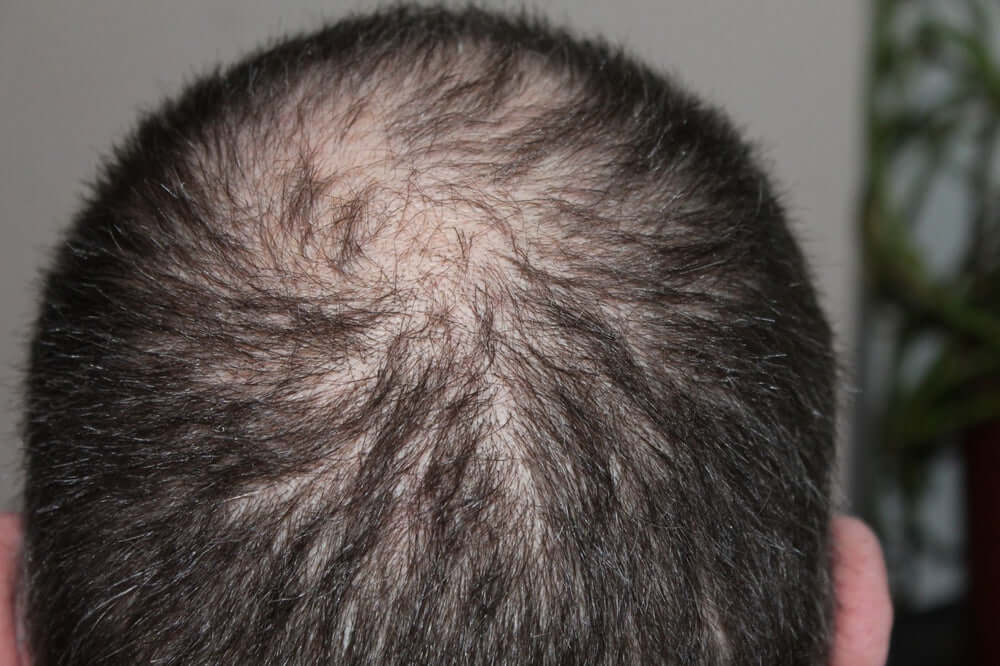How Stress Contributes to Hair Loss: Five Key Insights
Reviewed by Zang and Ridwan
Telogen effluvium, the type of hair loss linked to stress, affects both men and women. Despite being a well-known issue, there are still some surprising aspects of how stress can cause hair loss. Here are five things you may not have known about the connection between stress and hair loss.
Each year, men in the U.S. spend over $1 billion trying to prevent baldness, and with roughly 40 million bald men in the country, the battle against hair loss is a common concern. While hereditary baldness and conditions like alopecia are well-known causes of hair loss, stress is often an overlooked factor.
Although many people experience temporary hair thinning during stressful times, the long-term effects stress can have on your hairline are seldom discussed.
If you're curious about how stress can lead to hair loss and how to manage anxiety-induced baldness, keep reading. We've put together everything you need to know about stress and hair loss.
1. There are different Types of Stress-Related Hair Loss
When people search for information on stress and hair loss, they often assume the process is simple, but as with most hair loss issues, it's more intricate than it seems. There are three distinct conditions related to stress-induced hair loss.
The most common stress-related condition is telogen effluvium. This occurs when stress causes the brain to signal the scalp to stop hair growth. The condition typically affects the top of the scalp and is more prevalent in women.
Another stress-related disorder is trichotillomania. This condition involves the compulsive pulling or picking of hair, often without the person realizing it. Continuous hair-pulling can irritate the scalp and prevent hair from growing back.
Lastly, alopecia areata is a particularly distressing type of hair loss. It causes large patches of hair to fall out from various areas of the scalp, leading to noticeable bald spots.
2. It’s Usually Temporary
When dealing with hair thinning caused by stress, the most crucial thing to remember is to remain calm. While it’s natural to feel anxious about hair loss, increasing your stress levels will only exacerbate the issue, leading to even more hair thinning. Reducing anxiety and stress can help break this cycle and support your overall hair health.
3. There are Some Unlikely Treatments
When searching for ways to regain hair lost due to stress, many people think the solution lies in medications and frequent doctor visits. However, in many cases, the answer can be as simple as reducing the stress in your life.
Incorporating stress-reducing practices, such as meditation and regular exercise, can help halt the progression of hair loss. For more severe cases of hair thinning caused by stress, nonsurgical options like scalp micropigmentation and hair restoration medications may provide effective solutions.
4. There is a Strange Reasons Stress Makes Your Hair Fall Out
Cortisol, commonly known as the stress hormone, is usually the primary culprit behind stress-related hair loss.
When you’re under significant stress, your body releases excess cortisol, which can interfere with the hair growth process, hindering the normal hair cycle.
5. It’s One of the Most Common Causes of Hair Loss
One of the most frequently asked questions about baldness is whether stress can cause hair loss. The answer is yes, and it’s actually one of the leading causes of hair loss among younger individuals. Millennials, in particular, are noticing hair thinning and loss at earlier ages, largely due to the impact of stress.
Want More Treatments For Stress and Hair Loss?
Managing stress-related hair loss may feel overwhelming, but it doesn't have to be a lost cause. If you're looking for an effective and non-invasive solution to restore your hair, reach out to us today!We're here to help guide you through the process.
